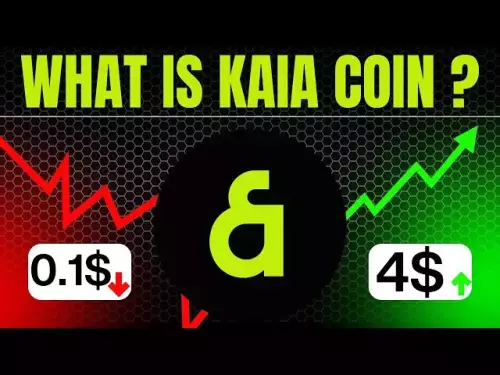 |
|
 |
|
 |
|
 |
|
 |
|
 |
|
 |
|
 |
|
 |
|
 |
|
 |
|
 |
|
 |
|
 |
|
 |
|
Cryptocurrency News Articles
Coinbase's Bold Move: Pursuing OCC Charter, But Not Becoming a Bank?
Oct 04, 2025 at 08:07 pm

Coinbase's Bold Move: Pursuing OCC Charter, But Not Becoming a Bank?
Coinbase's pursuit of a National Trust Charter from the OCC highlights the evolving relationship between crypto and traditional finance. The exchange aims to enhance its services and gain regulatory clarity without transforming into a conventional bank.
Coinbase's Charter Quest: Scaling Up, Not Becoming a Bank
Coinbase is seeking a National Trust Company Charter from the Office of the Comptroller of the Currency (OCC), a move announced on October 3, 2025. This isn't about becoming a bank. According to Coinbase, the charter is a strategic step toward scaling its business and integrating digital assets into the broader financial system. The charter offers a fresh layer of regulatory oversight, fostering innovation and growth.
Greg Tusar, Coinbase's VP of institutional product, emphasized that this charter would "streamline oversight for new offerings and enable continued innovation." The focus is on clear rules, regulatory trust, and customer confidence, ensuring secure innovation.
A Trend Among Crypto Firms
Coinbase isn't alone in this pursuit. Other crypto firms, including Circle, Ripple, Paxos, and BitGo, have also applied for similar charters. These efforts reflect a broader trend toward aligning with traditional banking regulations, signaling a regulatory shift in the US.
Clashes with Big Banks and the Stablecoin Stance
Despite these federal ambitions, Coinbase isn't looking to become a bank. The company is actively mobilizing crypto users through its 'Stand With Crypto' initiative, challenging what it sees as attempts by the banking industry to limit access to interest-bearing stablecoins.
In August, banking associations raised concerns about the risks of allowing uninsured institutions to issue stablecoins, sparking a debate about competition and regulatory loopholes. Coinbase CEO Brian Armstrong has criticized this as "hypocrisy," advocating for better products and competition in the financial sector.
Payments and Stablecoins at the Core
Coinbase's strategy heavily involves payments, particularly as stablecoins gain traction. Its close partnership with Circle and the USDC stablecoin is central to this approach. With the OCC now regulating dollar-pegged stablecoins, a trust charter could enable Coinbase to expand payments and custody services under clearer federal guidelines.
The Bigger Picture
The OCC's decision on Coinbase's application is a pivotal moment for the crypto industry. Approval could reshape how stablecoins and digital assets interact with the US financial system, strengthening Coinbase's position as a leading crypto custodian.
As Brian Armstrong puts it, Coinbase aims to be a "bank replacement," offering crypto custody, trading, payments, and on-chain financing. This move toward a National Trust Charter is a significant step in that direction.
So, What's Next?
Will Coinbase get its charter? Only time will tell. But one thing's for sure: the outcome will have a major impact on the future of crypto in the US. It's like watching a high-stakes poker game where the future of finance is on the table. Exciting times ahead, folks!
Disclaimer:info@kdj.com
The information provided is not trading advice. kdj.com does not assume any responsibility for any investments made based on the information provided in this article. Cryptocurrencies are highly volatile and it is highly recommended that you invest with caution after thorough research!
If you believe that the content used on this website infringes your copyright, please contact us immediately (info@kdj.com) and we will delete it promptly.























![\SOREVILLE\ by Zoogie 100% [1 Coin] \SOREVILLE\ by Zoogie 100% [1 Coin]](/uploads/2025/10/15/cryptocurrencies-news/videos/soreville-zoogie-coin/68eef24487e4e_image_500_375.webp)
![Staking ATH: How To Stake $ATH in October 2025 with 523% APY — [Step-By-Step Guide] Staking ATH: How To Stake $ATH in October 2025 with 523% APY — [Step-By-Step Guide]](/uploads/2025/10/15/cryptocurrencies-news/videos/staking-ath-stake-ath-october-apy-stepstep-guide/68eef94d80903_image_500_375.webp)





































